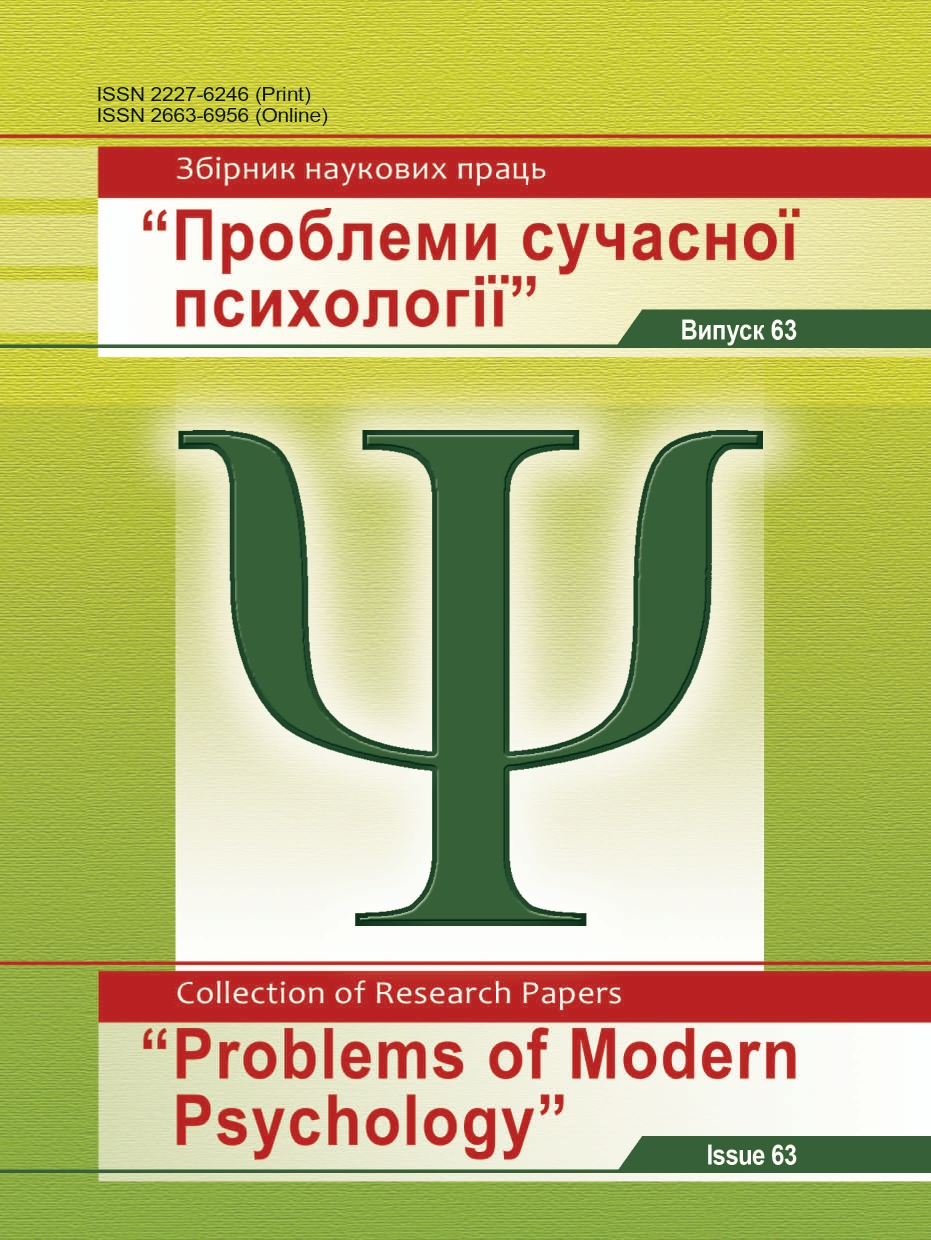A Pilot Study of Adaptive and Maladaptive Relationships between Parents and Children of Senior Age
DOI:
https://doi.org/10.32626/2227-6246.2024-63.27-47Keywords:
adaptive family relationships, maladaptive relationships, conflict relationships, multicultural communication, harmonious communication, self-expression, self-presentation, self-respectAbstract
The purpose of this article is: to show adaptive family relationships, which are greatly influenced by actualization of gender and role identification; to present mother’s negative family experience, which also affects maladaptive family relationships with children; to give specificity of conflict relationships in singleparent families, and show how these conflicts differ to a large extent from even seemingly similar conflicts in full-parent families; to describe the results of pilot study of adaptive and maladaptive relationships between parents and children of senior age.
Methods of the research. The following theoretical methods of the research were used to solve the tasks formulated in the article: a categorical method, structural and functional methods, the methods of the analysis, systematization, modeling, generalization. The empirical method is a pilot research.
The results of the research. We proved, that as a rule, maladaptive family relationships were considered in psychological literature, in particular, in terms of analyzing children’s conflicts with adults. At the same time, conflicts between high school students and teachers as significant adults come to the fore. That is, maladaptive family relationships arise as a result of misunderstandings of senior pupils in school interaction (as a result of failure, misunderstandings with teachers on the basis of various issues and problems). At the same time, maladaptive family relationships are analyzed only fragmentarily. Senior pupils always show the need to be a full-fledged participant in the interaction, and not a simple witness of certain events. Schoolchildren in senior school age claim that they are busy with certain important matters, perform independent actions, seek to express their attitude to events, but their parents do not always fully imagine how adequate or correct their children’s actions are.
Conclusions. We can highlight the personality needs of senior pupils, characteristic of this age period, which amplify adaptive family relationships, such as: the need to independently perform various types of activities, to get pleasure from them; a need to explain the extremely important meaning of one’s personality in relation to others, to be needed by others; the need for self-expression, self-presentation, which actualizes considerable interest and self-respect of senior pupils, the desire to justify one’s opinion and to have it heard, the desire to protect oneself from aggression on the part of others, but not just to agree silently with the situation that develops, but to be able to object, not to agree, not to accept it, etc., and also not to be guided by it in further activities; the need for multicultural, harmonious communication with adults.
Downloads
Published
How to Cite
Issue
Section
License
Copyright (c) 2024 Hlavinska Elina

This work is licensed under a Creative Commons Attribution-NonCommercial 4.0 International License.
Copyright
The Editorial Board has the full right to publish original scientific papers containing results of theoretical and experimental research works which are not currently subject to review for publication in other scientific editions. The Author shall transfer to the editorial board of the Collection the right to spread the electronic version of the paper, as well as the electronic version of the paper translated into English (for papers originally submitted in Ukrainian and Russian) by all kinds of electronic means (placement at the official website of the Collection, electronic databases, repositories etc).
The Author of an article reserves the right to use materials of the paper, without approval with the editorial board and the founders of this Collection: a) partially or fully, for educational purposes; b) for writing own dissertation papers; c) for preparation of abstracts, conference reports and presentations.
The Author of an article can place electronic copies of the paper (including the final electronic version downloaded from the official website of the Collection) at:
- personal web resources of all Authors (websites, webpages, blogs etc.);
- web resources of the institutions where the Authors are employed (including electronic institutional repositories);
- non-profit public access web resources (for example, arXiv.org).
But in all cases, it is obligatory to have a bibliographic reference to the paper, or a hyperlink to its electronic copy placed at the official website of this Collection.






